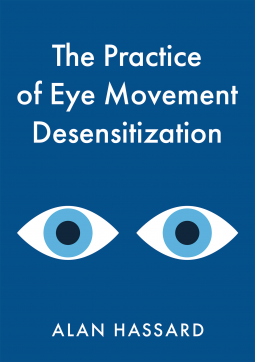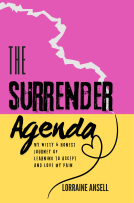
The Practice of Eye Movement Desensitization
by Alan Hassard
This title was previously available on NetGalley and is now archived.
Send NetGalley books directly to your Kindle or Kindle app
1
To read on a Kindle or Kindle app, please add kindle@netgalley.com as an approved email address to receive files in your Amazon account. Click here for step-by-step instructions.
2
Also find your Kindle email address within your Amazon account, and enter it here.
Pub Date 7 Jun 2022 | Archive Date 19 Jul 2022
Talking about this book? Use #ThePracticeofEyeMovementDesensitization #NetGalley. More hashtag tips!
Description
This book is an introduction, discussion, manual and attempted explanation of eye movement desensitization therapy. Thirty years ago a psychologist in California, the late Dr Francine Shapiro, found that distressing memories decreased with systematic eye movements. Since then thousands of psychological therapists have trained in this method and millions of patients have been treated. This method remains controversial, since these is still no accepted explanation. It must be artificial REM sleep, but more explanation is required.
The author of this book first used eye movement desensitization in 1991. This book is the result of 30 years experience, reflection and research. The method is described, along with different therapeutic targets and problem solving. Problems of memory and assessment are considered. Distress measurement is advocated as key to good practice. An explanation is developed and it's limitations considered, We are using artificial dreaming to unload the patient's overloaded working memory. Eye movement desensitization indicates the way ahead for psychological treatment. This book offers a succinct and readable account for practitioners and those therapists considering the initial straining course.
A Note From the Publisher
Available Editions
| EDITION | Ebook |
| ISBN | 9781803138237 |
| PRICE | £8.99 (GBP) |
| PAGES | 200 |
Average rating from 5 members
Featured Reviews
“The Practice of Eye Movement Desensitization” is clearly written by someone who not only has stellar experience but also has keen knowledge and stark wisdom regarding the practice of eye movement desensitization. I will be chewing on Alan’s integrative insights for quite some time. Excellent work!
 Reviewer 823951
Reviewer 823951
Such an interesting insightful read as I am presently getting EMDR. This book is an introduction, discussion, manual and attempted explanation of eye movement desensitization therapy. Thirty years ago a psychologist in California, the late Dr Francine Shapiro, found that distressing memories decreased with systematic eye movements. Since then thousands of psychological therapists have trained in this method and millions of patients have been treated. This method remains controversial, since these is still no accepted explanation. It must be artificial REM sleep, but more explanation is required.
The author of this book first used eye movement desensitization in 1991. This book is the result of 30 years experience, reflection and research. The method is described, along with different therapeutic targets and problem solving. Problems of memory and assessment are considered. Distress measurement is advocated as key to good practice. An explanation is developed and it's limitations considered, We are using artificial dreaming to unload the patient's overloaded working memory. Eye movement desensitization indicates the way ahead for psychological treatment. This book offers a succinct and readable account for practitioners and those therapists considering the initial straining course.
This book is targeted more for professionals who would use this technique in their practice. Knowledgeable and insightful, for tips on therapy, and patients might want to understand as well. Thanks to Netgalley, the author, and the publisher for allowing me to read and review.
 Reviewer 943301
Reviewer 943301
I had heard of Eye Movement Desensitization, but I didn't know much, so I'm glad I had the chance to read this book. It is obvious that the author, Alan Hassard, is very experienced in this type of treatment of trauma and his knowledge is invaluable. The book is suitable for patients, but I think is more targeted towards professionals in the mental health field (I imagine that this is the target audience, since the topic of the book is quite niche). All in all it was a very interested read and I would recommend it to people interested in learning more about EMDR. Thanks to NetGalley and Matador for providing me with a copy.


















